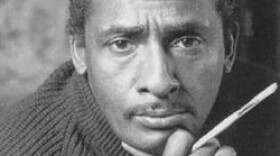WorldBeat Cultural Center has dried out from the recent storm and is ready to welcome Black Comix Day this weekend. The event highlights Black creators in the comic industry.
Keithan Jones has a vision for Black Comix Day.
"I just thought, let me just make a bat signal for Black creators out there that they can all congregate and come to," Jones said.
Brian J. Lambert saw that signal and responded.
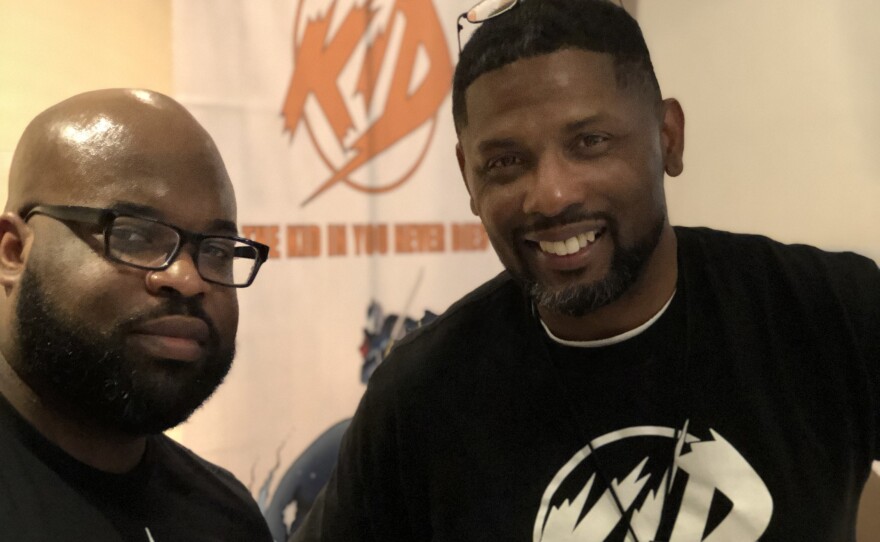
"Without Black Comix Day, I honestly wouldn't be where I am. I showed up to Black Comix Day number two, because a friend had told me about it, and I had two posters that I had gotten done, and I stapled my business card to, 'Brian Lambert, writer and author.' I handed them all out," Lambert said.
Now he runs Wingless Comics and Entertainment, which is breaking out into animation with the new project, "Air Force Ones."

"Unless you see someone like you doing it or you see someone who you can relate to doing it, it's hard to get that picture in your head that I can do it as well," Lambert said.
Makeda Cheatom agrees. She runs WorldBeat Cultural Center, which has hosted Black Comix Day since 2020.

"When I was a kid, I never had comics that reflected me as a Black kid," Cheatom recalled. "So it means everything to our community to see all these people that are Black, expressing themselves through comics. It means the world to me."
That fuels Jones’ desire to keep putting on the show.
"Obviously, you hear about people like Stan Lee and Marvel, which is fine," Jones said. "But there's a whole slew of creators out there, particularly creators of color, which is what this show is based on, that are chugging away, trying to get up to that level, and they just need a chance."
Jones is giving them that chance. Plus, he wants to highlight the diversity among Black creators. You can find the expected superheroes but also comics about history, African deities, Sam Spade-style detectives, and even strippers. Jones calls it a smorgasbord.

Since the event is free, he hopes people will use the money saved to sample some of these tasty offerings. He also wants it easy for artists to attend.
"The term 'struggling artist' is, unfortunately, a real thing," Jones said. "And so I try to make it affordable for them, but at the same time, I do have to pay for putting this thing together."
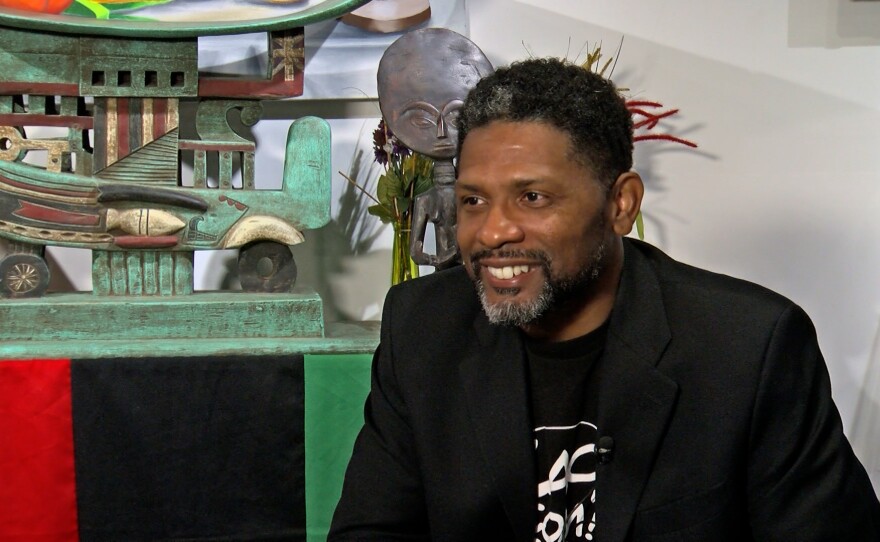
And sometimes out of his own pocket, but Jones does it because he believes in it. He knows events like this can be life-changing.
"I got started at age 16. I showed my stuff at San Diego Comic-Con. I walked around and actually got hired by Apple Comics at the time, and they put me on a Dracula story. But Comic-Con has gotten big, and this is still a small show, where you can come in and get personal with the artist and develop relationships with them that may lead to some kind of magic in the future," Jones said.
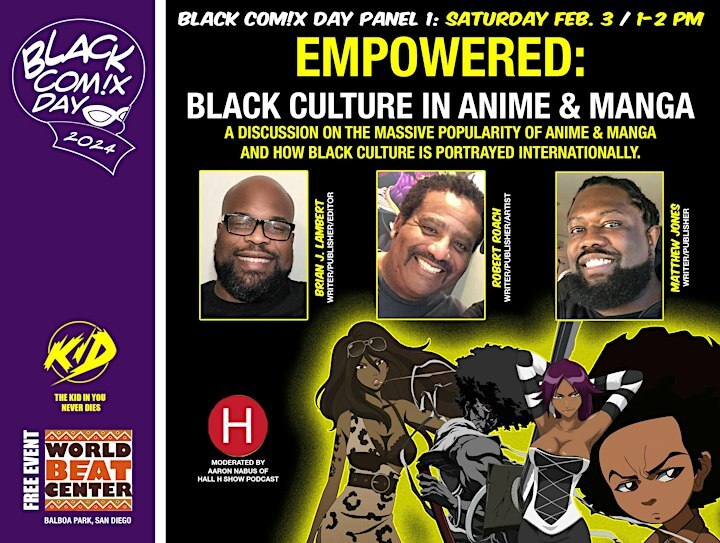
Once again, a pair of panels anchor the convention. On Saturday, the topic is how Black culture has been portrayed in Japanese anime and manga. Lambert is one of the panelists.
"There have been some that have been horrible," Lambert said. "I'm looking at 'Dragon Ball Z' with Mr. Popo, who's got completely black skin and pink lips and we got all these caricatures of blackface and things because that's the media lens that they were able to glean in Japan. But then we also get some better characters in newer manga and anime in terms of 'Fire Force,' which has a character called Ogun, and the character is powerful, and he has his own determination and so we're just really reviewing the effects of the cultural exchange of Black culture in terms of music, hip hop style, all of that."
The panel also includes Matthew Jones, who creates his own manga-style comic here in the U.S.
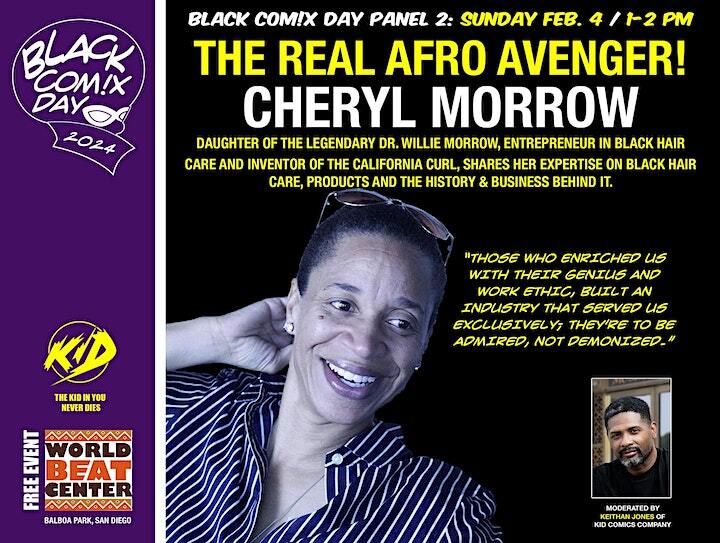
On Sunday, Keithan Jones moderates a panel with Cheryl Morrow.
"She is the daughter of Willie Morrow, the inventor of the California curl," Jones said. "He also is the publisher and founder of San Diego Monitor News, which is a Black paper that's been in San Diego for many years. He's passed now. So she's continuing his legacy, and she's also an expert in black hair care."
"He has coined me 'Afro Avenger,'" Morrow said. She will be discussing both publishing and hair.
"In Black culture, obviously, hair is just one of those things that is not an accessory. It is like the epicenter," Morrow explained. "And one of the reasons why, because it's the single most important thing that I think that we've had complete ownership of. And you can really express that in comics."
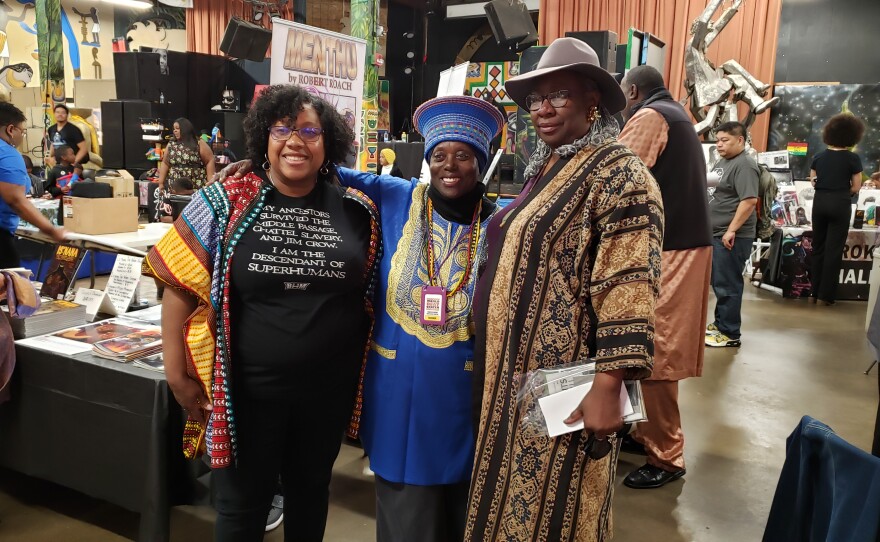
As Jones tries to balance family, his own comic ("The Power Knights"), a publishing company (KID Comics), and organizing an annual convention, he can sometimes feel overwhelmed. But…
"I draw energy just from the love of doing it," Jones said. "I honestly don't know how I got this far, but I'm feeling good. And the vibe is feeling right."
Jones’ slogan for his company is, “the kid in you never dies.” And this weekend we can all discover how true and inspiring that can be — especially for creators of color.

